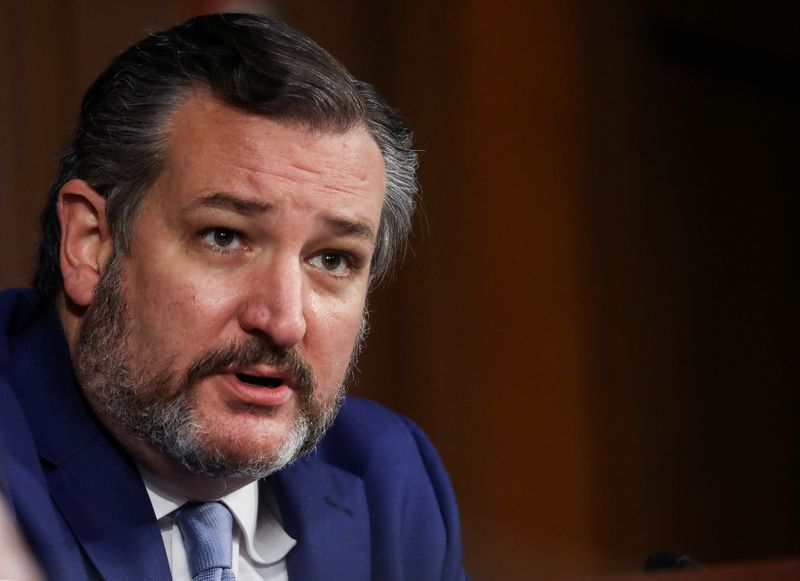By Stephanie Kelly
NEW YORK (Reuters) - A group of U.S. Republican senators asked the Environmental Protection Agency on Wednesday to consider a general waiver that would prevent an increase in biofuel blending obligations next year for oil refiners hit by a collapse in fuel demand because of the coronavirus pandemic.
Senators including Shelley Moore Capito of West Virginia and Ted Cruz from Texas said the waiver for 2021 would help refiners cope with the pandemic, which has pushed gasoline demand down more than 10% from year-ago levels.
U.S. laws require the refining industry to blend increasing amounts of biofuels into their fuels each year, requirements that have helped farmers by creating a huge market for corn-based ethanol, but which refiners say is costly.
The senators also urged EPA to ensure blending obligations do not exceed the so-called "blend wall" of 10% ethanol in the fuel pool. Most ethanol-blended gasoline sold at retail pumps has a 10% cap on the biofuel because some vehicles cannot use gasoline with higher ethanol blends.
That could mean reducing mandated blending volumes, if overall fuel demand drops enough, the senators argued.
The letter comes after Trump's EPA handed a major victory to ethanol producers last month, siding with them over oil refiners in an ongoing dispute over the obligations. EPA rejected scores of requests from refiners for waivers that would have retroactively spared them from blending obligations.
"Ethanol producers and refiners should proportionately share the economic hardships associated with the current declines in fuel demand, rather than having government mandates shift the burdens of the former onto the latter," the letter said.
Since then, the Trump administration has discussed ways to help small refineries handle the cost of complying with blending obligations. However, the administration has not publicly presented a plan.

The American Petroleum Institute welcomed Wednesday's letter. "EPA should move immediately to employ a general waiver to limit the 2021 obligation," said Ron Chittim, API's vice president of downstream policy.